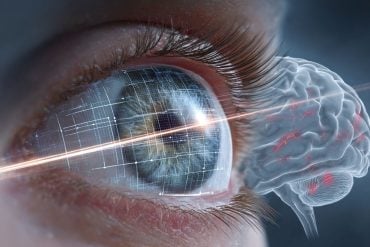Summary: A systematic review and meta-analysis explored whether alcohol consumption influences androgenetic alopecia (AGA), the most common form of hair loss. The study found a modest association between drinking and AGA, with drinkers 1.4 times more likely to experience AGA than non-drinkers, though the link was not statistically significant.
Discrepancies between study types suggest more robust research is needed to confirm any connection and identify mechanisms, such as acetaldehyde’s potential effects on the scalp’s immune environment. These findings could guide future research, improve public health strategies, and lead to more personalized hair loss prevention and treatment plans.
Key Facts:
- Alcohol consumption was modestly linked to AGA, but the association was inconclusive.
- Robust cohort studies found no significant link between alcohol and AGA risk.
- Researchers recommend further studies with standardized diagnostic criteria.
Source: Pusan National University
Androgenetic alopecia (AGA) is a common condition that affects millions of men and women worldwide. As the most prevalent form of hair loss, AGA can impact an individual’s appearance and self-esteem, often leading to concerns about aging and social perceptions.
While AGA is primarily driven by genetic and hormonal factors, lifestyle factors such as smoking, diet, and stress have also been explored as potential contributors.
Alcohol consumption, a widespread behavior worldwide, is widely studied for its health impacts, including risks for diseases such as liver damage and cardiovascular diseases. However, whether alcohol intake could influence or exacerbate hair loss, particularly AGA, remains uncertain.

One hypothesis is that acetaldehyde, a byproduct of alcohol metabolism, may interfere with the scalp’s immune environment—factors that could potentially contribute to AGA. However, this proposed mechanism remains speculative.
To address this gap, a group of researchers led by Professor Yun Hak Kim from the Department of Anatomy at Pusan National University’s School of Medicine conducted the first systematic review and meta-analysis.
The findings were published on November 11, 2024 in the journal Alcohol and Alcoholism.
“The study found that although individuals who consume alcohol may have a slightly higher likelihood of experiencing AGA compared to non-drinkers, this association is not statistically significant,” explains Prof. Kim. The odds of AGA among drinkers were found to be 1.4 times higher than in non-drinkers, but with a wide range of uncertainty.
Cross-sectional and case-control studies have shown a modest association between alcohol intake and AGA, while cohort studies, that are typically more robust, did not find a significant correlation.
This discrepancy suggests that further high-quality research is needed to clarify whether alcohol has any impact on AGA risk.
The researchers advocate for larger, well-controlled cohort studies to better understand whether alcohol impacts AGA, and if so, the underlying mechanism.
They also recommend standardized criteria for diagnosing AGA and consistent definitions of alcohol use in future research to generate more definitive conclusions.
Prof. Kim concludes with the long-term implications of their study, “Our research could inform public health guidance, patient counseling, and targeted awareness campaigns, helping individuals make informed lifestyle choices regarding hair health.
“Over time, this could contribute to more comprehensive, personalized health strategies, where factors like diet, genetics, and lifestyle are better understood and integrated into prevention and treatment plans for hair loss.”
The researchers hope this study paves the way for improved and personalized treatments for improving hair health.
About this AUD and hair loss research news
Author: Yun Hak Kim
Source: Pusan National University
Contact: Yun Hak Kim – Pusan National University
Image: The image is credited to Neuroscience News
Original Research: Closed access.
“Exploring the association between alcohol consumption and androgenic alopecia: a systematic review and meta-analysis” by Yun Hak Kim et al. Alcohol and Alcoholism
Abstract
Exploring the association between alcohol consumption and androgenic alopecia: a systematic review and meta-analysis
Aims
Androgenetic alopecia (AGA) is widely recognized as the most common form of hair loss and can significantly affect individuals’ quality of life. The association between alcohol consumption and AGA remains uncertain and controversial. Our primary objective is to investigate the relationship between alcohol consumption and AGA.
Methods
We identified studies from multiple databases, including Embase, MEDLINE, ScienceDirect, Scopus, and Web of Science, up to March 2024. For alcohol consumption, we included studies where it was defined as a categorical variable, such as Yes/No or classified by grams. For AGA, only cases that were clinically diagnosed were included. Odds ratios (ORs) and their corresponding 95% confidence intervals were extracted from the included studies. Subgroup analyses were conducted, considering factors such as gender and study design.
Results
Our findings indicated that individuals who consume alcohol had an OR of AGA compared to those who do not drink alcohol (OR, 1.40; 95% CI: .95–2.06; k = 6; I2 = 77%). In the subgroup analysis focusing on men, an OR for alopecia was observed (OR, 1.31; 95% CI: .85–2.01; k = 4; I2 = 78%). Additionally, a subgroup analysis based on study design revealed ORs of 1.93 (95% CI: 1.32–2.82; k = 3; I2 = 47%) for cross-sectional studies, and 1.69 (95% CI: 1.33–2.14; k = 2; I2 = 0%) for case–control studies.
Conclusions
Our results suggest that the effect of alcohol consumption on AGA may be less than initially assumed. Future research will require large, carefully planned cohort studies that incorporate standardized diagnostic criteria to provide more definitive insights.






